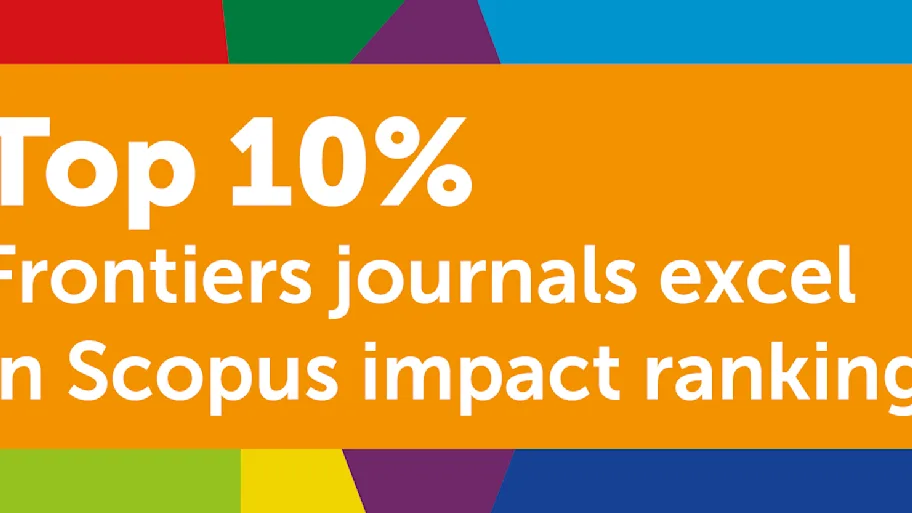
- Science news
- Neuroscience
- Most read articles of February 2022: Does life really flash before our eyes before death?
Most read articles of February 2022: Does life really flash before our eyes before death?
By Colm Gorey, Frontiers Science Communications Manager

Image: Shutterstock.com
Each month, Frontiers shines a spotlight on some of the leading research across a wide range of topics. Here are just some of the highlights that resonated strongly with readers on our news site in the month of February.
A replay of life: What happens in our brain when we die?
Imagine reliving your entire life in the space of seconds. Like a flash of lightning, you are outside of your body, watching memorable moments you lived through. This process, known as ‘life recall’, can be similar to what it’s like to have a near-death experience.
What happens inside your brain during these experiences and after death are questions that have puzzled neuroscientists for centuries. However, a new study published to Frontiers in Aging Neuroscience suggests that your brain may remain active and coordinated during and even after the transition to death, and be programmed to orchestrate the whole ordeal.
Article link: https://www.frontiersin.org/articles/10.3389/fnagi.2022.813531/full
2. Eating vegetables does not protect against cardiovascular disease, finds large-scale study
A long-term ‘UK Biobank’ study on almost 400,000 people published to Frontiers in Nutrition found little or no evidence that differences in the amount of consumed cooked or uncooked vegetables affects the risk of cardiovascular disease.
When known socio-economic and lifestyle confounding factors are corrected for, the small apparent positive effect that remains could likely also be explained away by further confounders.
The authors suggested that future studies should further assess whether particular types of vegetables or their method of preparation might affect the risk of CVD.
Article link: https://www.frontiersin.org/articles/10.3389/fnut.2022.831470/full
3. Brains of cosmonauts get ‘rewired’ to adapt to long-term space missions, study finds
A recent study published in Frontiers in Neural Circuits is the first to analyze the structural connectivity changes that happen in the brain after long-duration spaceflight. The results showed significant microstructural changes in several white matter tracts such as the sensorimotor tracts.
The study can form a basis for future research into the full scope of brain changes during human space exploration.
“[The] findings give us additional pieces of the entire puzzle,” said Dr Floris Wuyts of the University of Antwerp who led the research.
“Since this research is so pioneering, we don’t know how the whole puzzle will look yet. These results contribute to our overall understanding of what’s going on in the brains of space travelers.”
Article link: https://www.frontiersin.org/articles/10.3389/fncir.2022.815838/full
4. Injuries to Zambian lions and leopards caused by shotguns and wires snares greatly underestimated
The incidence of lion and leopard injuries caused by humans in Zambia is much higher than previously thought, according to a recent study in Frontiers in Conservation Science. Using a simple forensic examination technique, researchers found that injuries from entanglement in wire snares are present in 37% of lions and 22% of leopards in Zambia, while 27% of lions had shotgun pellets embedded in their skulls.
Their method provides an opportunity to better monitor and quantify the number of large carnivores sustaining non-lethal injuries due to human activities including poaching and land protection.
Article link: https://www.frontiersin.org/articles/10.3389/fcosc.2022.803381/full
5. Children may instinctively know how to do division even before hitting the books, study finds
We often think of multiplication and division as calculations that need to be taught in school. But a large body of research suggests that, even before children begin formal education, they possess intuitive arithmetic abilities.
A recent study published in Frontiers in Human Neuroscience argued that this ability to do approximate calculations even extends to that most dreaded basic math problem – true division – with implications for how students are taught mathematical concepts in the future.
Article link: https://www.frontiersin.org/articles/10.3389/fnhum.2022.752190/full
REPUBLISHING GUIDELINES: Open access and sharing research is part of Frontiers’ mission. Unless otherwise noted, you can republish articles posted in the Frontiers news site — as long as you include a link back to the original research. Selling the articles is not allowed.






